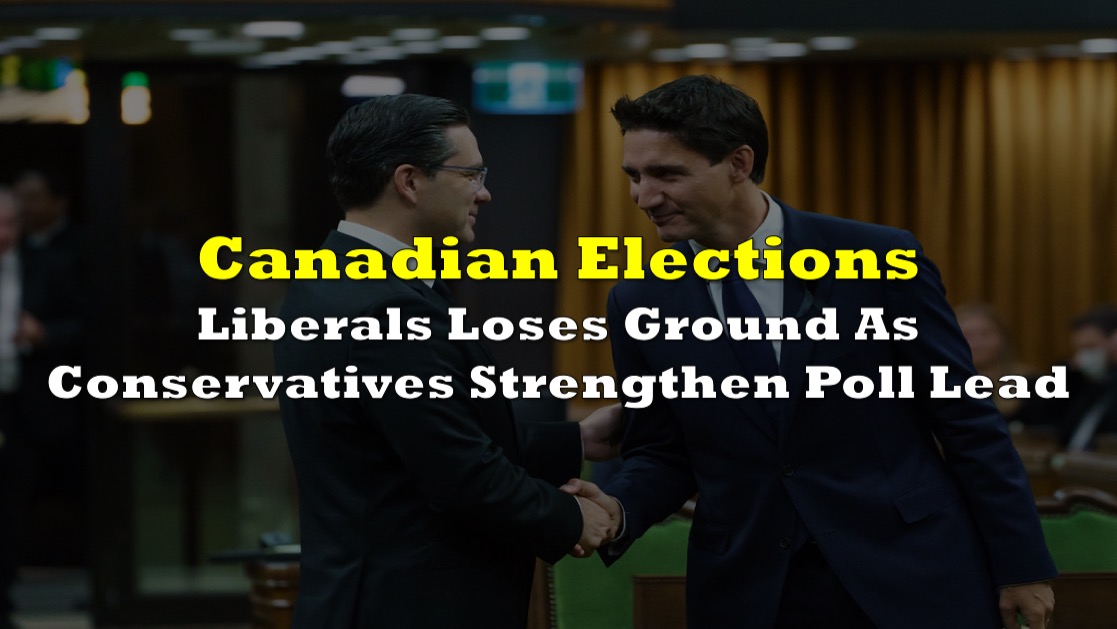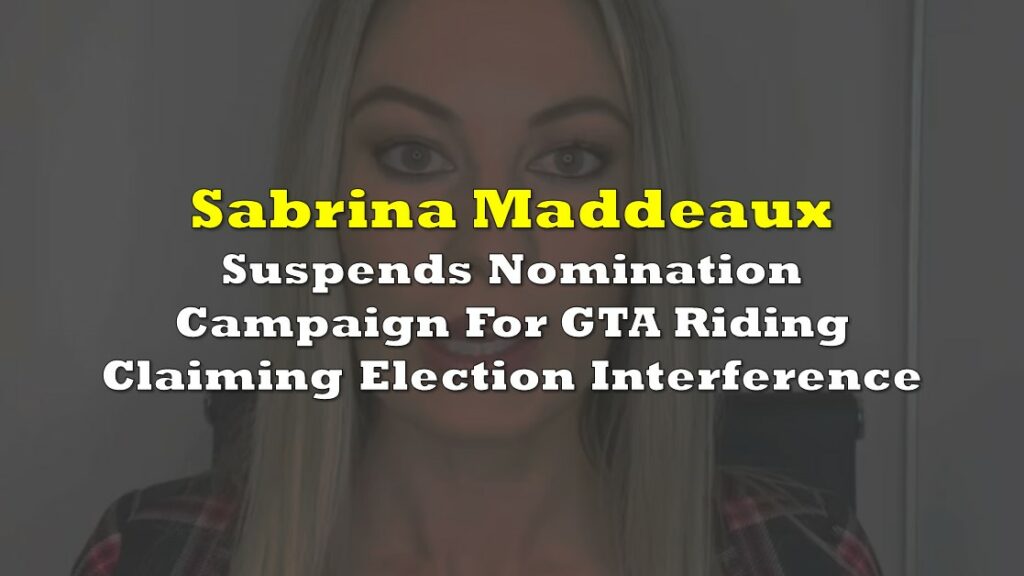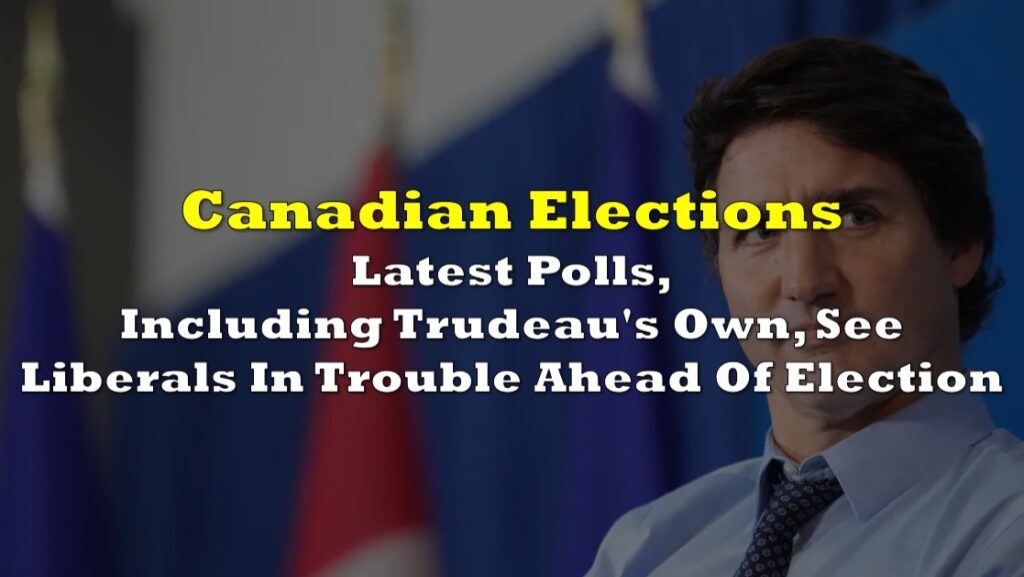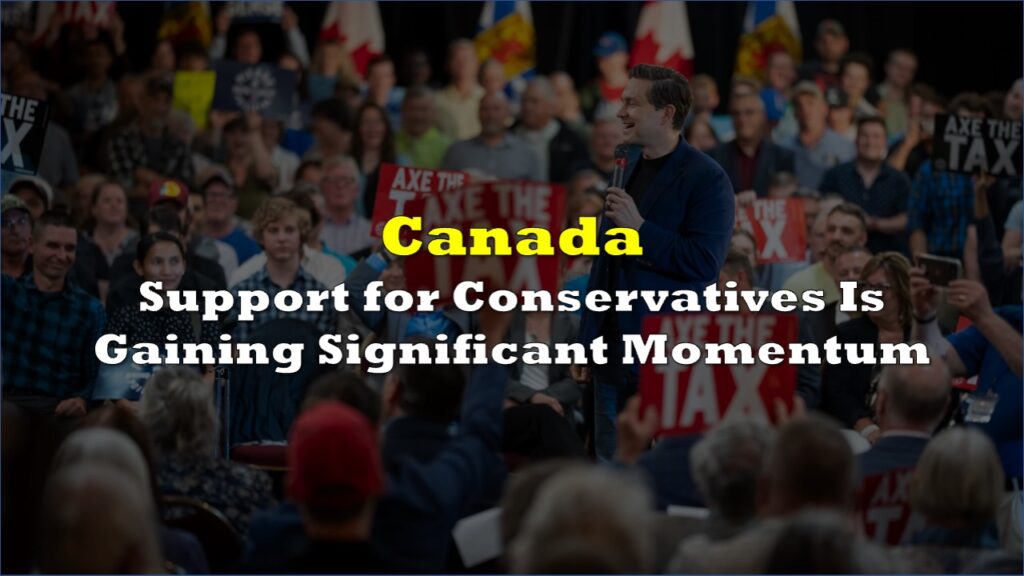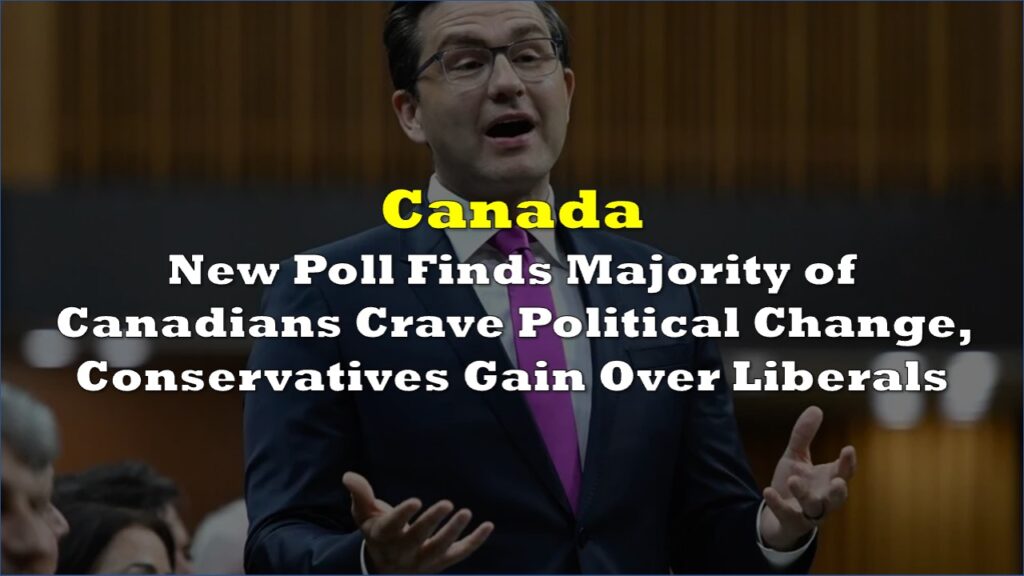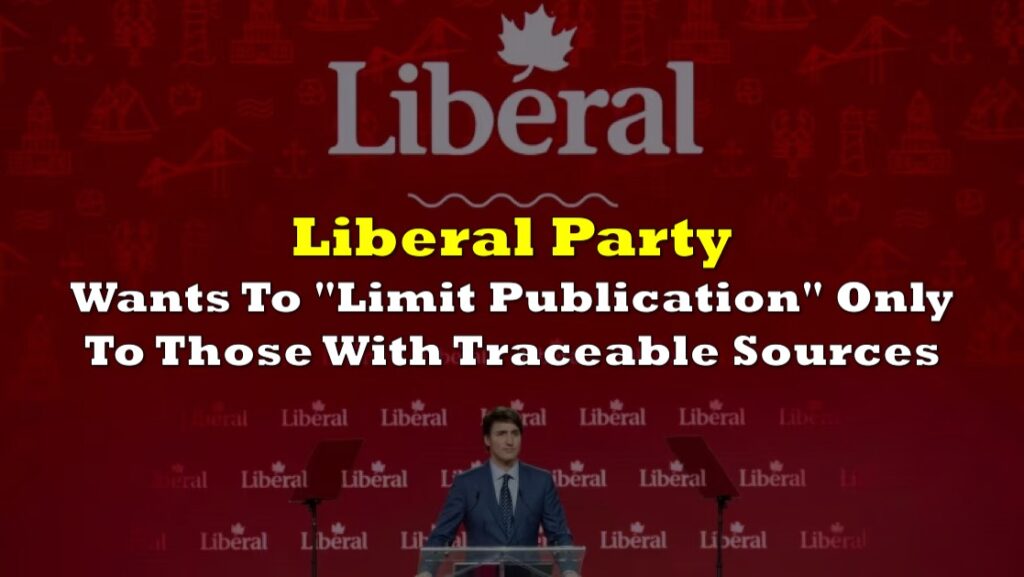Canadian Prime Minister Justin Trudeau has a tough electoral environment ahead of him as the latest prediction model from 338Canada has his party down a few more percentage from the last survey, while the Conservatives are gaining more ground and solidifying its lead among voters.
The prediction model supposes that Conservatives will win 194 seats in the House in the next election, a huge upswing from the current 117 seats. Meanwhile, Liberals are expected to retain only 90 seats from the current 158 seats they have.
Updated @338Canada Federal Model:
— Polling Canada (@CanadianPolling) October 15, 2023
CPC: 194 (+75)
LPC: 90 (-70)
BQ: 32 (-)
NDP: 20 (-5)
GPC: 2 (-)
– October 15, 2023 –
(Seat Changes With 2021 Federal Election)
Check out this weeks updates here 👇https://t.co/Yq7tMExS0r
The political website surmised that the most recent federal polling data released last week delivered another somber message for the ruling Liberals, as it indicates that support for the party has failed to rebound from its decline in late summer, which can no longer be described merely as a “slump.”
The site noted Nanos Research, Abacus Data, and Mainstreet Research unveiling new statistics that place the Conservative Party in a commanding lead across the country. This is particularly evident in regions where Liberal support had remained robust until recently, such as Ontario and Atlantic Canada. Moreover, a close examination of the data suggests a slight shift in the political landscape in Quebec as well.
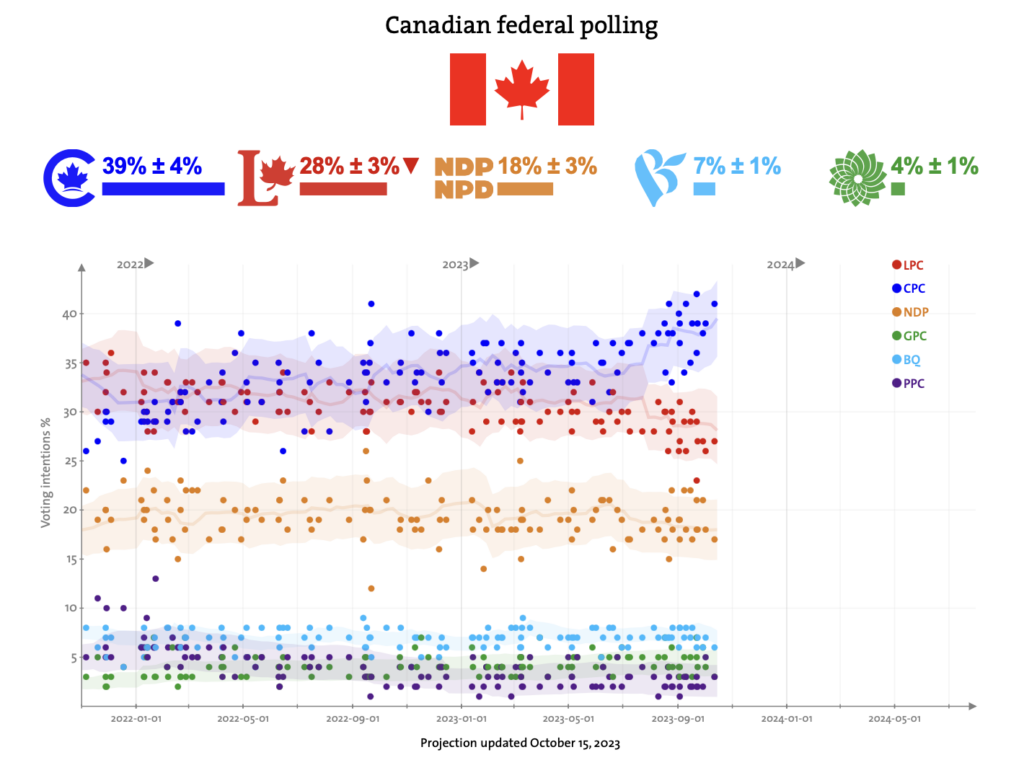
Trudeau, who is 51 years old, has a history of defying low poll numbers, having won three elections since 2015. The next federal election is not scheduled until October 2025, a full decade after he initially assumed office. Presently, most opinion polls show Trudeau trailing his latest rival, Conservative leader Pierre Poilievre.
According to a recent Ipsos poll, the Conservatives led the Liberals by 39% to 30% just last month. Another Ipsos poll indicated that 60% of Canadians believe Trudeau should step down, allowing the Liberal Party to choose a new leader—an increase of 6 points compared to December 2022.
However, despite these numbers, a change in leadership doesn’t seem imminent. While some members of his caucus have voiced concerns about the government’s response to Poilievre’s repeated attacks on cost-of-living issues, no Liberal lawmakers have openly challenged Trudeau’s leadership.
Potential alternatives like Finance Minister Chrystia Freeland and former central banker Mark Carney have been mentioned, but none are seen as possessing the same tenacity and charisma in retail politics as Trudeau.
Notably, no Canadian prime minister has won four consecutive elections since Wilfrid Laurier in 1908. For Trudeau, this election could determine the fate of legacy policies such as a strengthened social safety net and measures positioning Canada as a leader in the low-carbon economy.
Frank Graves, the founder of polling company Ekos Research, believes there is “no evidence” that the Liberals will choose a new leader, and time is running out. He argues that there’s no guarantee an alternative leader would fare better, as Trudeau remains a formidable campaigner.
Trudeau has made it clear that he plans to run in the upcoming election and seems eager to take on Poilievre. However, his personal and political life has faced significant challenges this year, including a separation from his wife of 18 years and economic stressors such as high interest rates and a soaring cost of living.
Internationally, Trudeau’s recent announcement linking Indian agents to the murder of a Sikh separatist leader in British Columbia has put Canada in a delicate position with allies seeking closer ties with New Delhi to counter China’s ascent.
Despite this deficit in the polls, Trudeau has not seen a noticeable erosion of support from his inner circle, unlike leaders in similar situations.
Meanwhile, Pierre Poilievre is crafting his narrative through TV ads, portraying himself as a family man. While he is making a strong impression among Canadians, it’s not so much a wave of “Poilievre-mania” as it is a collective desire for change.
Information for this briefing was found via Reuters and the sources mentioned. The author has no securities or affiliations related to this organization. Not a recommendation to buy or sell. Always do additional research and consult a professional before purchasing a security. The author holds no licenses.

